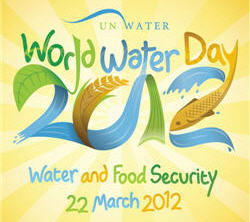A new study by researchers at MIT shows that there is enough capacity in deep saline aquifers in the United States to store at least a century's worth of carbon dioxide emissions from the nation's coal-fired powerplants. Though questions remain about the economics of systems to capture and store such gases, this study addresses a major issue that has overshadowed such proposals.

Companies deploy social media to raise awareness and encourage change in honor of World Water Day, March 22.
After 25 years, former waste dump converted to endangered wildlife habitat in Guam.
Backed by health and consumer-safety groups, a Massachussetts representative petitions FDA to take action.
U.S. Government raising awareness of accidental exposures during National Poison Prevention Week.
Permits call for major reductions in phosphorus; new limits on mercury, ammonia and temperature.
The U.S. Environmental Protection Agency (EPA) has proposed that companies be required to report to EPA all new uses, including in domestic or imported products, of five groups of potentially harmful chemicals. EPA also calls for additional testing on health and environmental impacts of PBDEs.
Banana peel, coffee grounds and other food waste will be transformed into green fuel for Oslo’s city buses starting next year. The Norwegian capital’s new biogas plant will also supply nutrient-rich biofertilizer for agriculture.
The U.S. Environmental Protection Agency (EPA) has issued a complaint against CRM Rental Management, Inc. of Rome, N.Y. for not informing residents of its buildings about potential lead-based paint in their apartments.
In a new study, researchers from the Colorado School of Public Health have shown that air pollution caused by hydraulic fracturing or fracking may contribute to acute and chronic health problems for those living near natural gas drilling sites.
Special conservation zones known as marine protected areas provide many direct benefits to fisheries and coral reefs.
Every year, the editors of the scientific journal Environmental Science & Technology, select the best papers among their peer-reviewed contributions, which numbered more than 1500 in 2011 alone. This year, a contribution by Empa researchers has been awarded the title "Best Paper" in the "Policy Analysis" category. The scientists studied the proportion of restricted substances found in plastic components from waste electrical and electronic equipment.
Worldwide increases in the incidences of asthma, allergies, infectious and cardiovascular diseases will result from a variety of impacts of global climate change, including rising temperatures, worsening ozone levels in urban areas, the spread of desertification, and expansions of the ranges of communicable diseases as the planet heats up, the professional organization representing respiratory and airway physicians stated in a new position paper.

The EPA partners with the Boys and Girls Clubs of America and Scholastic Inc. to bring environmental education to those most likely to bring it home.
Bechtel Corporation announced Edward Sproat, former director of DOE’s Office of Civilian Radioactive Waste Management, will guide senior managers of the Hanford Waste Treatment Plant in planning for a “world-class nuclear safety and quality culture.”
Chagas disease, a parasite-borne illness carried by kissing bugs afflicts millions of people in Central and South America today.
DOT recently awarded Carnegie Mellon University's College of Engineering and the University of Pennsylvania's School of Engineering and Applied Science a $3.5 million grant for the next two years.
Graduates’ caps and gowns will be green at Michigan Technological University’s spring commencement on Saturday, April 28, 2012 — not in color, but in spirit.
Cleaner! Faster! Cheaper! is a rallying cry for chemists working to limit the impact of their work on the environment.
The mining company, Kinross, has funded the position at Queen’s University in Kingston, Ontario, with $625,000 for a five-year period.